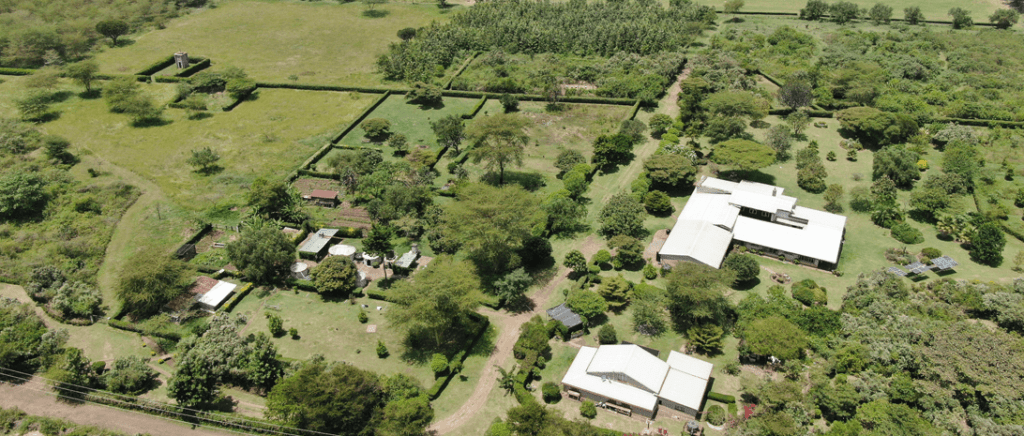
With William Karoki
Our Eden Reveals series brings you insights, news and professional expertise from all corners of the real estate industry! In this edition, we dive into the tax implications of property sales in Kenya with William Karoki, managing partner of WKA ADVOCATES, who focuses on real estate law amongst other specialities. Read on for his insights, and learn more about William at the bottom of this article!
What are the Tax implications of acquiring or selling property in Kenya?
> Stamp duty
The buyer is required to pay Stamp Duty in Kenya as follows:
- On the sale or lease agreement: The buyer must pay a nominal stamp duty on the sale or lease agreement, which serves as proof in case of fraud and is usually between KES 200-500, expressed in denominations of KES 20. The sale or lease agreement will be stamped with a red dye stamp.
- On the transfer forms: For properties located within cities and municipalities, the buyer must pay stamp duty on the transfer forms at a rate of 4% based on the property’s value. For properties located outside of cities and municipalities, the stamp duty rate is 2% of the property’s value.
> Capital Gains Tax
The Seller is required to pay Capital Gains Tax (CGT):
The Finance Act of 2022 amended the Income Tax Act, increasing the rate of capital gains tax, or CGT, from 5 percent (%) to 15 percent (%), effective January 1, 2023.
CGT is a tax imposed on the transfer of any property situated in Kenya. A transfer of property includes the sale, exchange, conveyance, or other disposition of property, as well as the destruction, abandonment, surrender, cancellation, or forfeiture of property. Examples of properties that may incur CGT when transferred include land, buildings, securities, and shares.
The rate of CGT is determined based on the specific circumstances of the transfer. For example, a firm certified by the Nairobi International Financial Centre Authority that invests KES 5 billion in Kenya and transfers the investment after five years will be subject to the rate that was in effect at the time of the investment. This means that if the firm made the investment before the CGT rate was increased to 15 percent, it would still be subject to the lower rate of 5 percent when it makes the transfer.
Allowable expenses for the purpose of computing CGT in Kenya include costs incurred in relation to the transfer of property, such as loan/mortgage interest, advertising costs, valuation costs, legal fees, and enhancement costs.
To compute CGT, the net capital gain is calculated by subtracting the allowable expenses and any exemptions from the total capital gain. For example, if the total capital gain on the transfer of a property is KES 10 million and the allowable expenses are KES 2 million, the net capital gain would be KES 8 million (KES 10 million – KES 2 million). The CGT due would then be calculated by applying the applicable rate (in this case, 15 percent) to the net capital gain, resulting in a CGT liability of KES 1.2 million (KES 8 million x 15%).
To pay CGT in Kenya, the individual or entity responsible for the transfer must file a return with the Kenya Revenue Authority within three months of the transfer. The tax must then be paid within 30 days of filing the return.
> VAT
According to recent developments, the Kenya Revenue Authority (KRA) was granted a stay of execution on the High Court judgment (Civil Suit 541 of 2015) on January 17, 2019. As a result, VAT on the sale of commercial buildings remains payable at a rate of 16%. However, the presumed appeal will be heard, and this ruling may change in the future.
> Bank Fees & Miscellaneous Costs
- Loan-related fees: If the seller takes out a loan, the bank may charge the property. The charges or mortgages can attract a fee of 0.1% of the amount secured. If the seller took out a loan, discharges or reconveyances may attract a fee of 0.05% of the amount secured.
- Bank Miscellaneous Costs: Miscellaneous bank costs, such as Real-Time Gross Settlement (RTGS), may also apply.
- Mobile Money Transfer Charges: The Central Bank of Kenya (CBK) recently announced changes to the mobile money transfer charges that were waived during the COVID-19 pandemic. Effective January 1, 2023, there is now a 20% excise tax on all transfers from banks to M-Pesa/TKash etc.
To learn more about Capital Gains Tax, Stamp Duty, VAT and more, contact Eden Heights!

Get to Know William Karoki
Who is William Karoki?
I am a happy, energetic and understanding human being. I am a loving husband, brother and son. I am also a practicing lawyer in Nairobi, Kenya and the Managing Partner, WKA ADVOCATES.
What services do you render?
I mainly offer Corporate Commercial Law Services and Business Restructuring, Real Estate and Estate Planning/Succession, and Conveyancing, Immigration Law to assist foreigners to invest seamlessly by assisting in acquisition of work permits. I also offer services bordering on-Dispute Resolution, Debt Recovery and Regulatory Compliance –employment and labor relations advice, and general legal compliance, IT and IP Law (Intellectual Property Protection and Data Protection Compliance). I can say it’s a full course.
How long have you practiced as a real estate lawyer and what credentials and certifications do you hold?
I have practiced law for the last 7 years. As stated above, I am a lawyer, qualified Advocate of the High Court of Kenya, a Commissioner for Oaths, Notary Public and a member of the law society of Kenya. I have an L.L.B from the University of Nairobi, a Post Graduate Diploma from the Kenya School of Law. I have a certificate in FIDIC Construction Law Contracts. Further, I have been part of the Team that worked on reviewing of the JBCC Green Book Construction Contracts. I am the Managing Partner of WKA ADVOCATES.
How do you stay so positive and vibrant?
Prayers, Good sleep (when I can), exercise, daily intermittent fasting – OMAD (one meal a day), healthy eating, and a good laugh!

